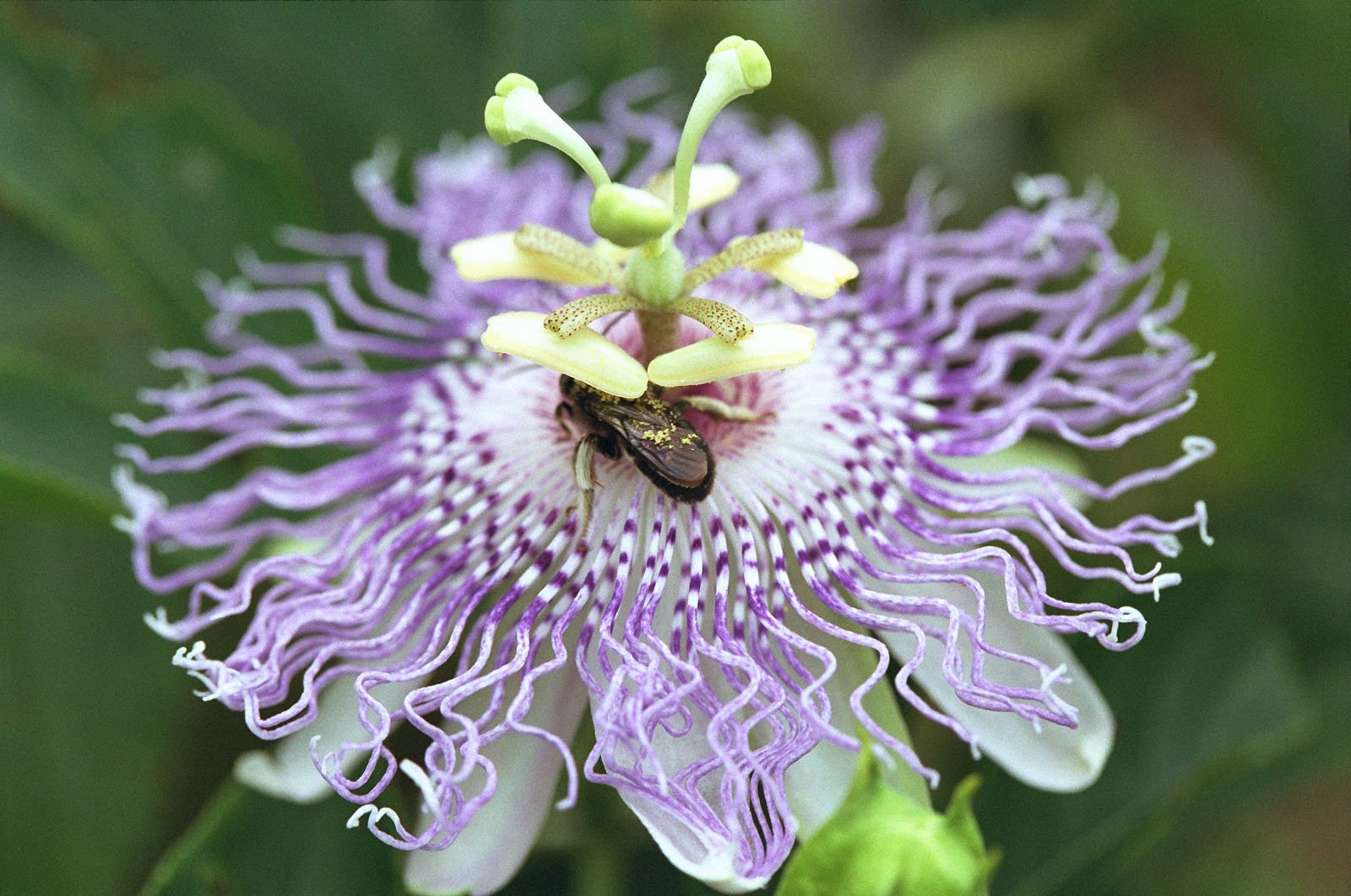Growing Passiflora incarnata, or Maypop, in your yard or garden can offer several benefits. Here are some of the advantages of cultivating this plant:
Ornamental Value
Passiflora incarnata is known for its striking and showy flowers. The large, purple blooms with their intricate structures can add beauty and visual interest to your yard or garden. The vine’s vigorous growth and lush foliage can also provide a lovely green backdrop.
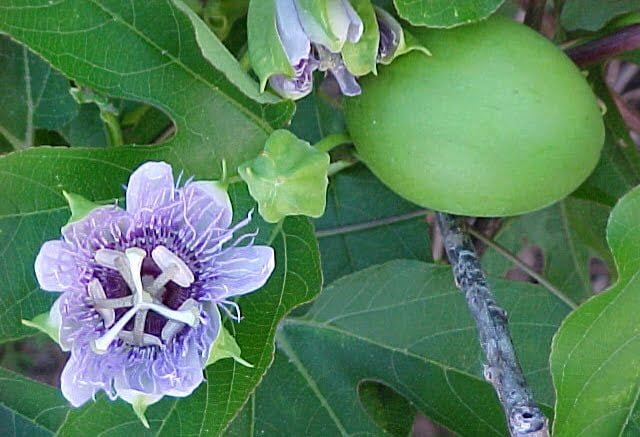
Pollinator Attraction
The flowers of Passiflora incarnata are rich in nectar and attract a variety of pollinators, including bees, butterflies, and hummingbirds. By planting this vine, you can support pollinator populations and contribute to the biodiversity of your garden.
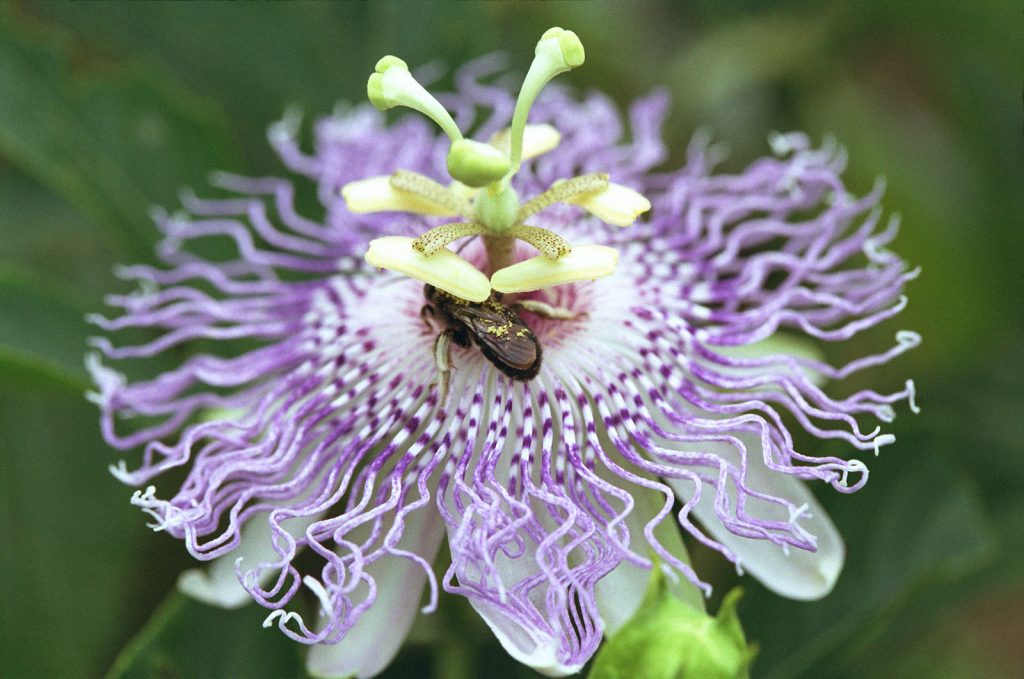
Edible Fruits
Passiflora incarnata produces edible fruits called “maypops.” Although they may not have the same commercial appeal as some other passionfruit varieties, they are still enjoyable to eat. The fruits have a unique flavor, often described as a combination of sweet and tart. Growing Passiflora incarnata allows you to enjoy the harvest of these tasty fruits.
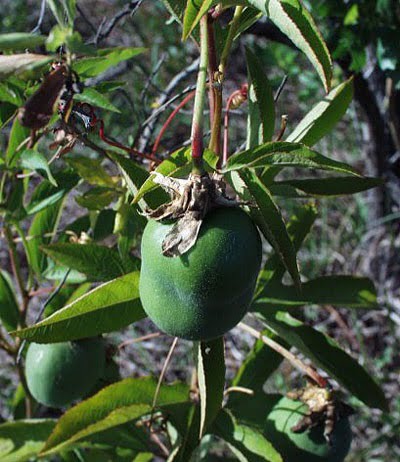
Medicinal Properties
Passiflora incarnata has a long history of traditional medicinal use. The plant is known for its calming and sedative properties, and its extracts are often used to promote relaxation and support healthy sleep. Having Passiflora incarnata in your garden provides a readily available source of this medicinal plant.

Wildlife habitat
Passiflora incarnata can serve as a habitat and food source for various wildlife species. The dense foliage and tangled growth habit of the vine can provide shelter and nesting sites for small animals and birds. Additionally, the fruits may attract wildlife such as squirrels, raccoons, or songbirds.

Erosion Control
Passiflora incarnata has a vigorous growth habit and can quickly cover bare patches of soil. By planting it in your yard or garden, you can help control erosion and stabilize the soil, especially on slopes or areas prone to erosion.

Low Maintenance
Once established, Passiflora incarnata is generally a low-maintenance plant. It is adaptable to a range of soil conditions and can tolerate both full sun and partial shade. With regular watering and occasional pruning to manage its growth, it can thrive without requiring excessive attention.
These are just a few of the benefits that come with growing Passiflora incarnata in your yard or garden. It’s a versatile and attractive plant that can contribute to the aesthetics, ecosystem, and even your well-being.
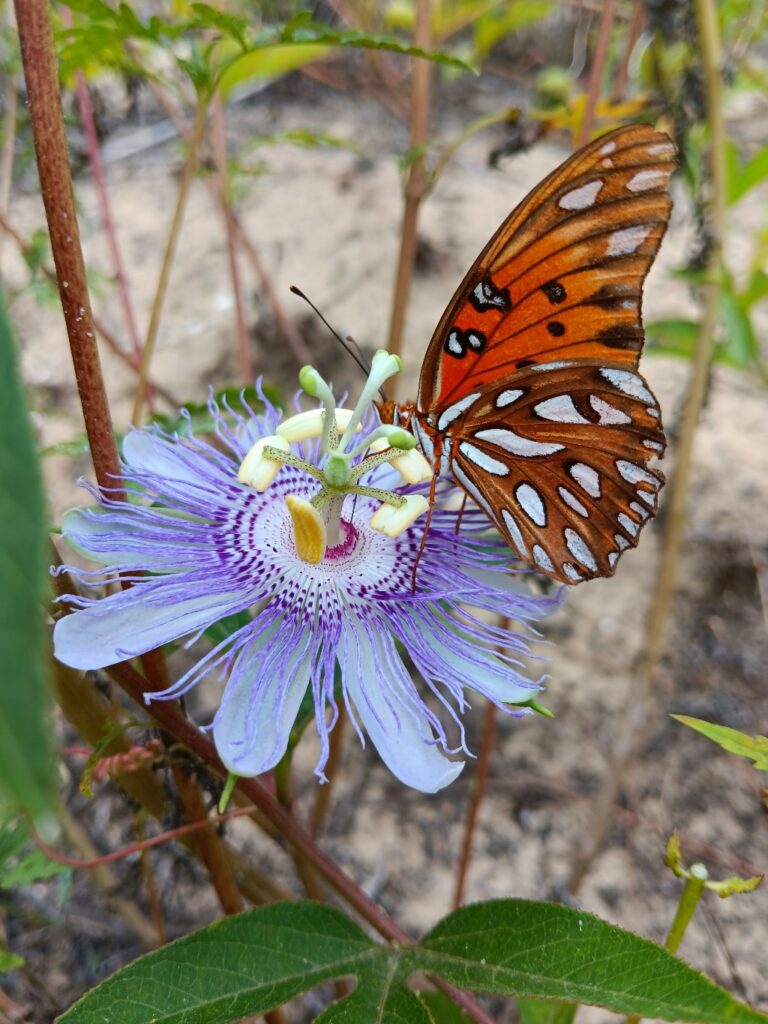
25 Florida-Native Maypop Purple Passionvine Seeds (Passiflora Incarnata)
Maypop Purple Passionvine Passiflora Incarnata seeds. Florida Native. 25+ seeds.
